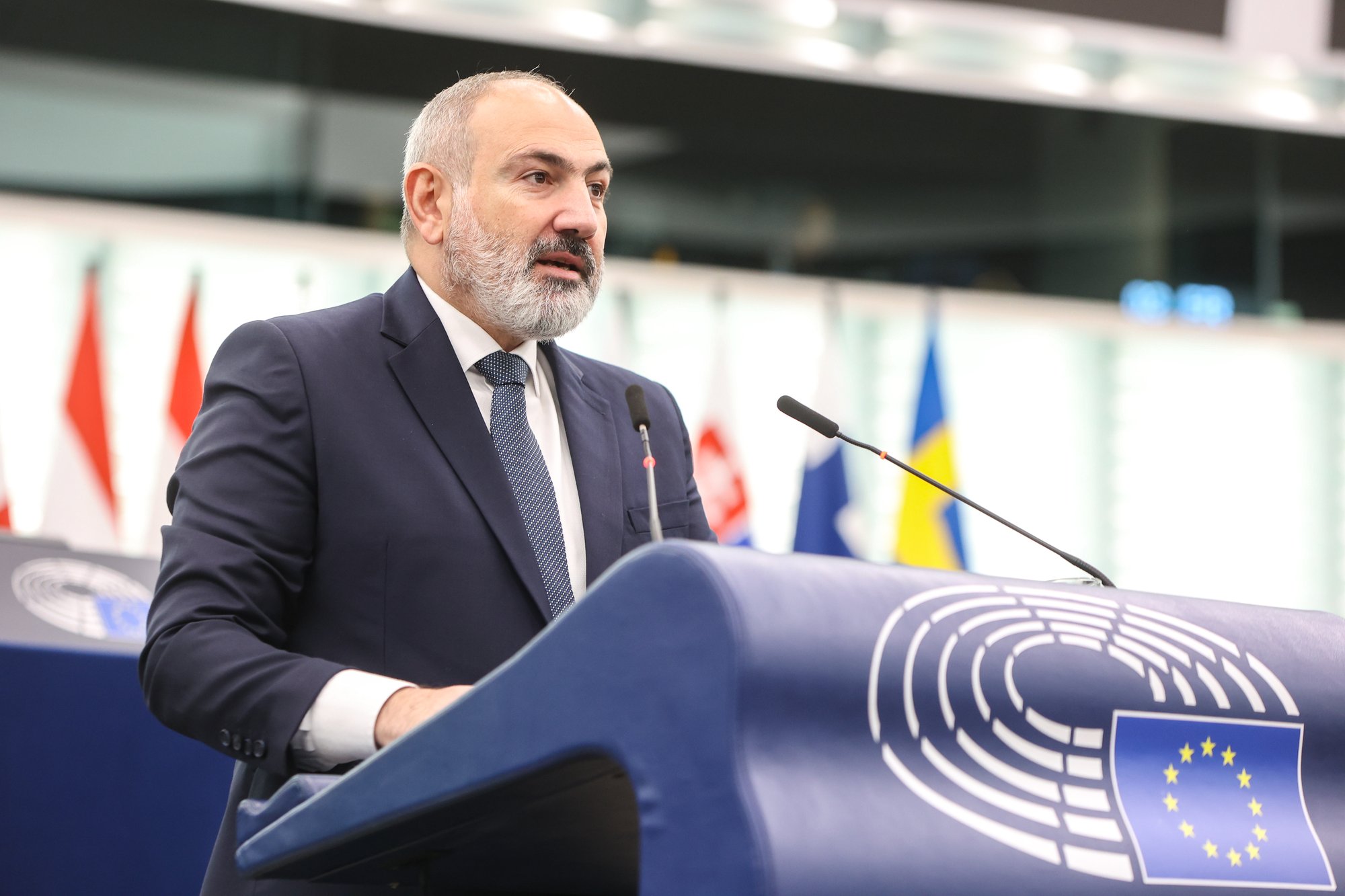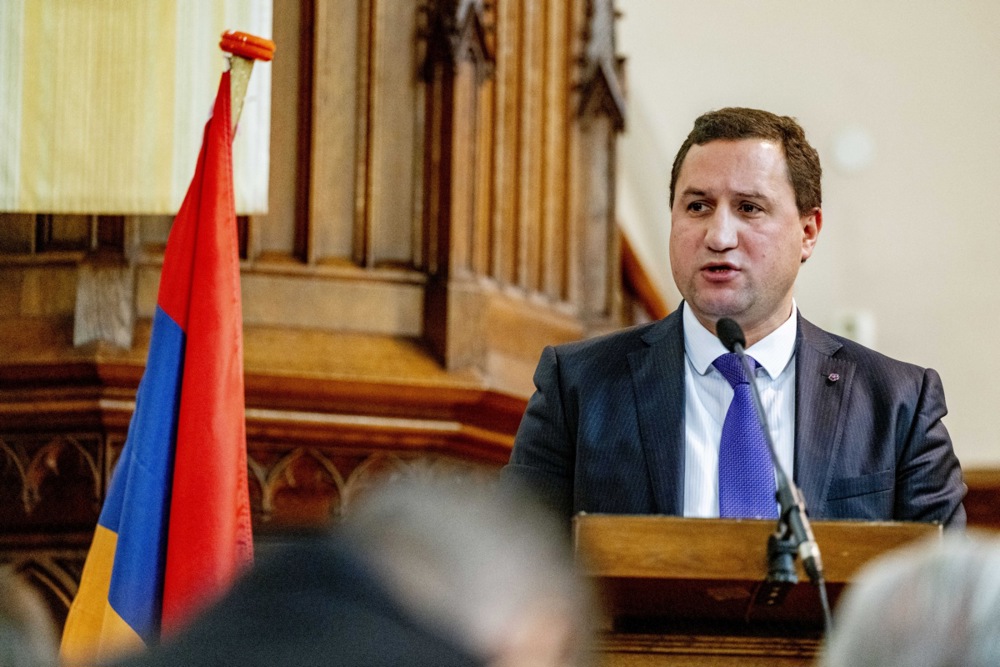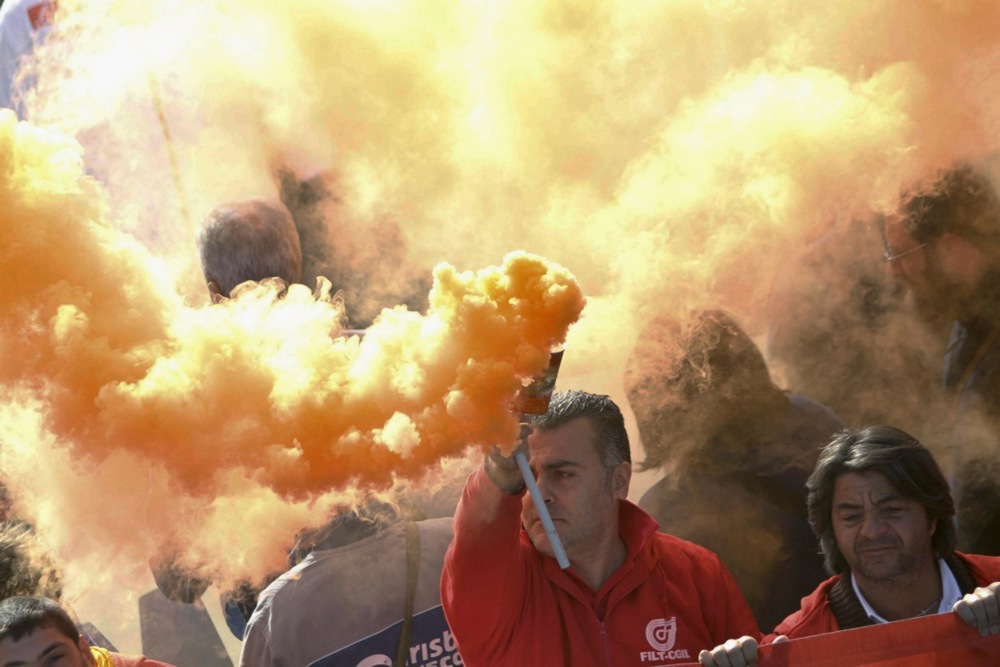The European Union is set to sanction the Azerbaijani Government, according to Armenia’s Ambassador to the EU, Tigran Balayan.
Speaking at a press conference at the European Parliament on January 24, Balayan said that, while he could not divulge details, he expected the EU to put in place measures targeting Azerbaijan and its leaders.
This comes as the EU and other international institutions look to take a harsher stance against Azerbaijan following its military takeover and “de-population” of the Nagorno-Karabakh region.
“There are already some results on the European level for sanctions,” Balayan told Brussels Signal, when asked if he expected imminent EU action.
He added, though, that he “cannot disclose [any such] because they not Armenian actions, they are European actions”.
“Only colleagues at the [European] Commission, the [European] Council, or from the Member States, have the right to divulge them, not a representative of Armenia.”
His statements come after the conflict that broke out in the contested Nagorno-Karabakh region last autumn. Then, the Azerbaijani army forced the capitulation of the ethnic Armenian-populated enclave – the unrecognised breakaway “Republic of Artsakh”.
While Azerbaijani officials declared they were willing to extend citizenship to and “tolerance” of the Armenians in Nagorno-Karabakh, as the Azerbaijani army took control virtually the entire Armenian population of more than 100,000 people fled to Armenia itself.
Now, with the region emptied, Armenian, EU and international officials warn of its cultural heritage being destroyed by the Azerbaijan authorities led by President Ilham Aliyev.
At the Parliament meeting hosted by Slovakian MEP Miriam Lexmann, Professor Pierre d’Argent, a member of the Institute for International Law, said Baku was showing “very worrying” signs of “erasing” the Armenian history of Nagorno-Karabakh.
Alongside Father Garegin Hambardzumyan of the Armenian church, the panel proposed that Azerbaijan was conducting a “daily” and “systemic” destruction of ancient Armenian gravestones and other cultural installations.
D’Argent also said the Azerbaijani leadership had indicated it would continue its “aggression” against Armenia, such as setting up academic departments to “revise history” and claim much of Armenian territory as being “Western Azerbaijan”.
On January 22, Josep Borrell, the EU’s de facto foreign minister, said: “Any violation of Armenia’s territorial integrity would be unacceptable and will have severe consequences for our relations with Azerbaijan.”
Asked about that viewpoint, most of the Parliament panellists seemed to feel that Borrell’s warning was too little too late.
According to Balayan: “Baku needs to see Borrell’s promised consequences already now.”
“It’s a bit of a late wake-up call”, d’Argent added.





